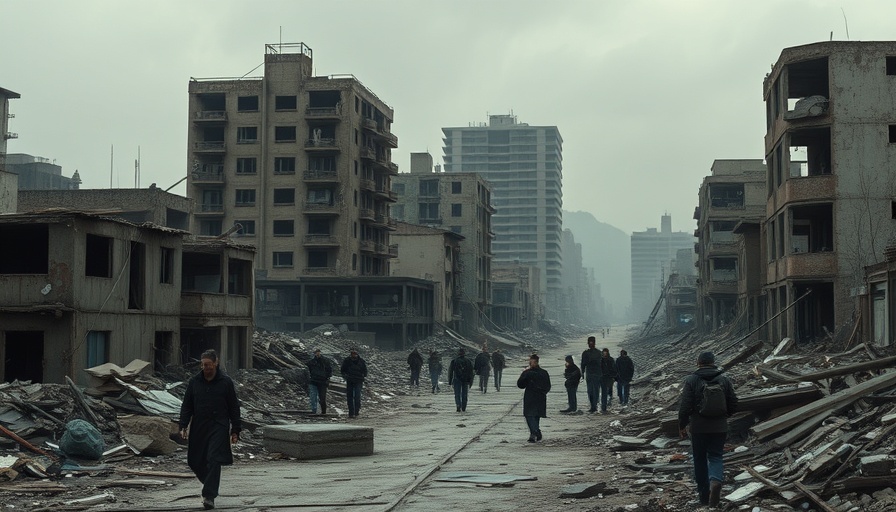
Netanyahu's Warning on Gaza Campaign Escalation
In a significant development, Israeli Prime Minister Benjamin Netanyahu has issued a stark warning regarding an imminent escalation of military operations in the Gaza Strip. As tensions rise, he publicly outlined a comprehensive plan that signals a drastic shift in Israel's approach towards the region, stating that it would involve "forceful entry" into Palestinian territories. This approach raises critical questions about the humanitarian implications and the future of both Israeli and Palestinian civilians caught in the conflict.
The New Phase of Military Operations
During recent statements, Netanyahu emphasized that the new phase would not just be an expansion of existing operations. Instead, it involves an aggressive strategy aimed explicitly at relocating a large segment of Gaza’s population further south. This prospect of forced relocation evokes memories of past conflicts and their dire humanitarian consequences. As some Israelis express concerns about the reasoning behind further military actions, voices are emerging calling for a peaceful resolution to the situation, emphasizing the need to avoid further casualties among civilian populations.
Current Reactions from Israelis
Public sentiment in Israel is notably mixed. While some support the government's tough stance against Hamas, there is growing unease about the human cost of conflict. Protesters have taken to the streets, driven by fears that further military escalation could lead to increased loss of life among hostages and civilians. Many advocates are now calling for a diplomatic approach as a viable alternative to armed conflict, insisting that, after nearly two years of fighting without clear success, it is time to seek a lasting solution.
The Humanitarian Crisis in Gaza
The forecasted military offensive raises deep humanitarian concerns. The unprecedented scale of the planned operations could lead to mass dislocation of families and exacerbate an already critical humanitarian crisis. With the United Nations and various NGOs warning of impending disasters, the potential for widespread suffering looms large. Civilians in Gaza have consistently faced severe shortages of food, medical supplies, and basic utilities, a situation exacerbated by ongoing military action.
International Perspectives on the Conflict
International reactions to these developments emphasize the urgent need for dialogue and a peaceful settlement. Global leaders are increasingly concerned about the implications of this escalated conflict not only for Israel and Palestine but also for regional stability in the Middle East. Calls for restraint from NATO countries and the European Union suggest a growing consensus on the need for innovative solutions beyond military options. As hope for peace hangs in the balance, it remains crucial that diplomatic channels are maintained even amid military actions.
Future Implications for Israeli-Palestinian Relations
Looking to the future, the pathway for Israeli-Palestinian relations remains fraught with challenges. If the planned escalation does occur, it could further entrench positions on both sides, making future negotiations even more difficult. Analysts argue that without addressing the core issues, such as the rights of Palestinians and the security concerns of Israelis, the cycle of violence is likely to continue. There’s a growing urgency for community leaders and citizens alike on both sides to engage in dialogue and seek pathways to reconciliation.
Conclusion: A Call for Action
The unfolding situation in Gaza is a critical reminder of the human cost of warfare. As Netanyahu outlines his government’s plans, the call for both Israeli and Palestinian voices to be heard has never been more urgent. This moment challenges all stakeholders, from citizens to global leaders, to push for peace and consider the lasting impacts of conflict on all lives involved. Communities worldwide watch closely, eager for resolution over escalation as the stakes grow ever higher.
 Add Row
Add Row  Add
Add 




 Add Row
Add Row  Add
Add 

Write A Comment